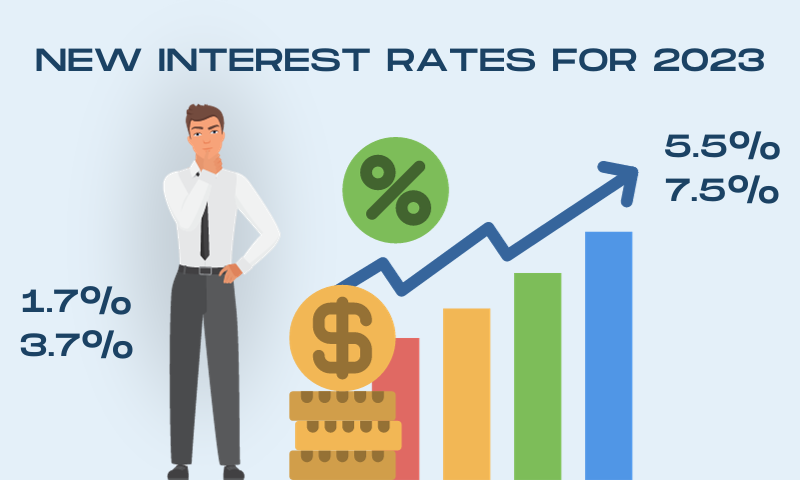This year, the pro anno interest rate is 5.5% until July 1st 2024, after which The Danish Tax Agency (Skattestyrelsen) will charge a fixed surcharge of 7.5%. Last year, the pro anno rate was 1.7% and the residual tax surcharge was 3.7%.
It is worthwhile to consider paying the residual tax, but of course it depends on the amount of the interest.
Day-to-day interest from January 1st to July 1st 2024
On residual tax paid after January 1st 2024, a pro anno interest must be paid from January 1st to July 1st 2024.
The pro anno interest rate for the income year 2023 is set at 5.5% per year. In reality this corresponds to approx. 8% before tax for most people, as the interest is not deductible. This is a significant increase compared to 2022, when the pro annorate was 1.7% after tax.
Therefore, it might be wise to give some consideration on whether or not to pay the back tax, especially if it is not paid by 1 July 2024 at the latest.
Payment after July 1st 2024
After July 1st 2024, a residual tax is charged with a surcharge of 7.5%. For most people, this corresponds to approximately 11% before tax in a 6 month period, as the interest is not deductible. It can thus be of significant importance if the residual tax is paid on or after July 1st 2024.
Again, this is a significant increase compared to 2022, with a doubling of the surcharge from 3.7% to 7.5%.









 ® – 2024. All rights reserved. Crossbord
® – 2024. All rights reserved. Crossbord